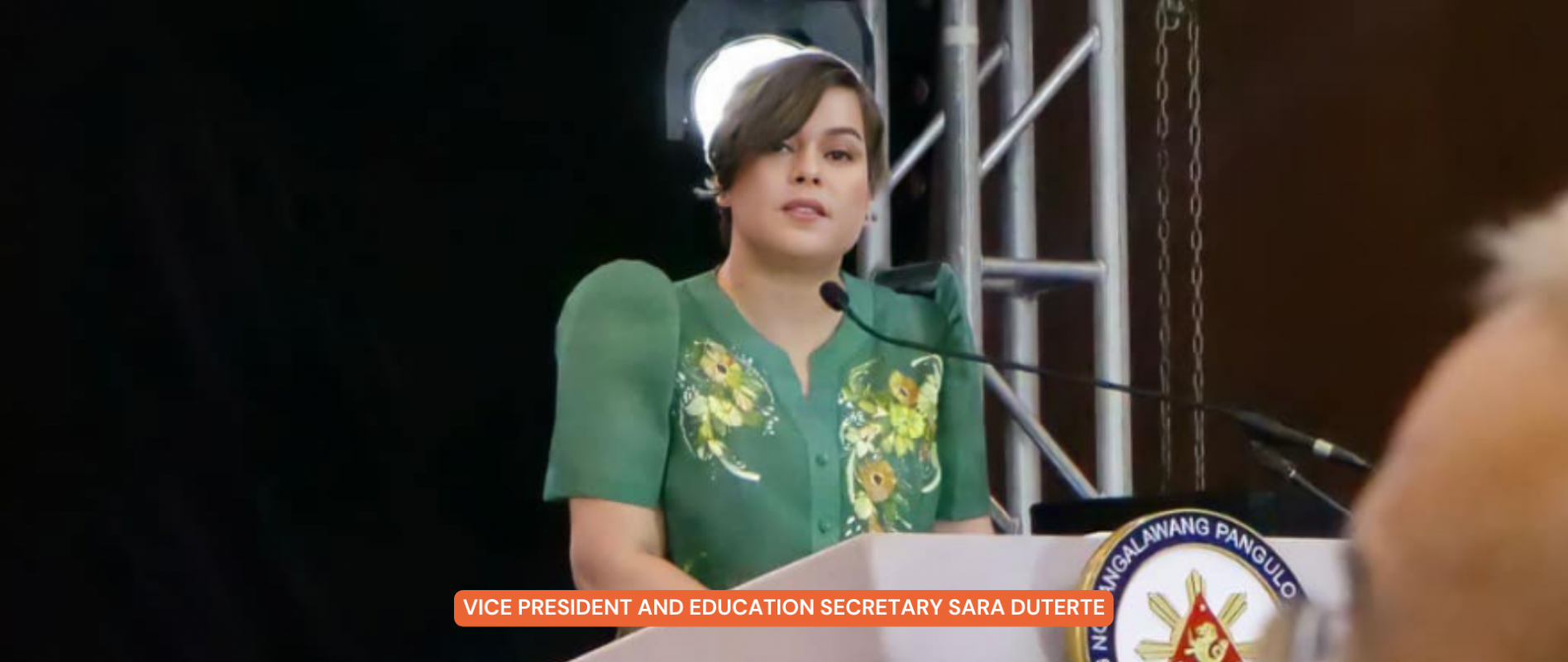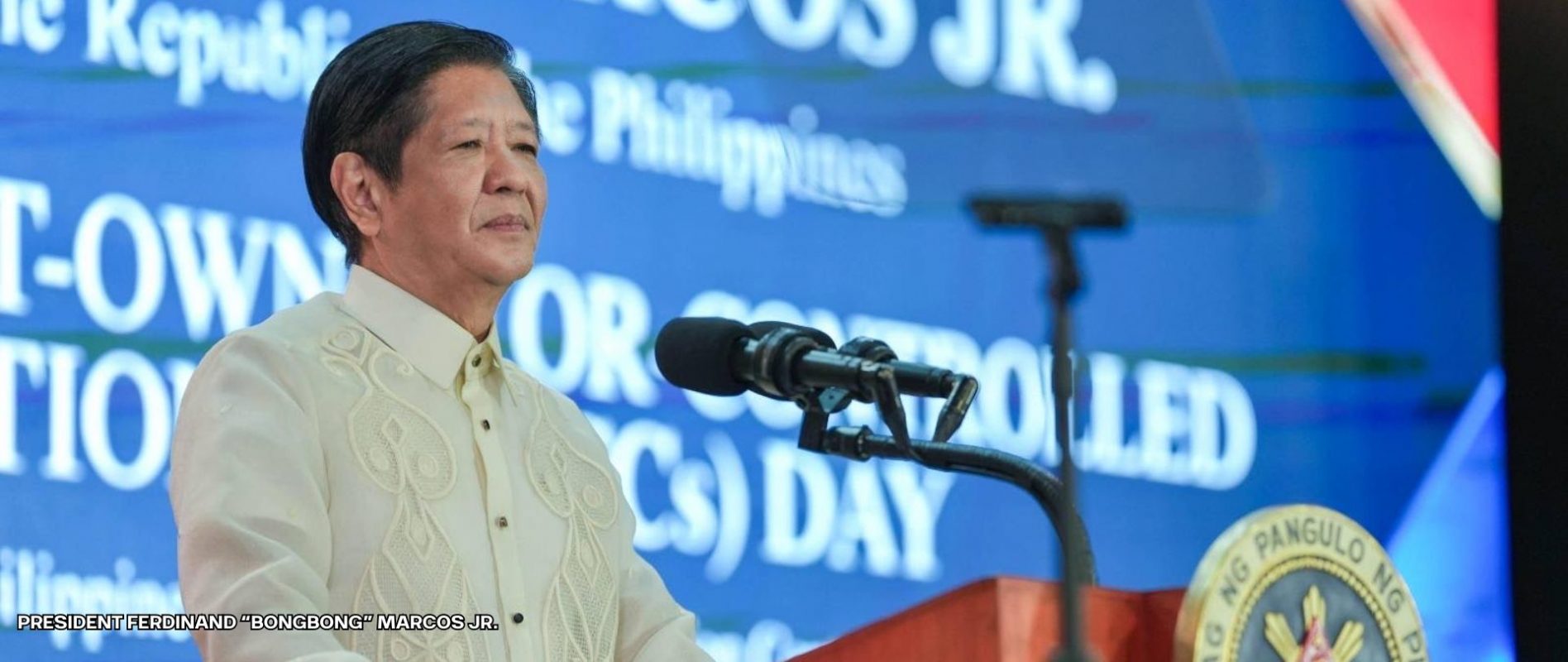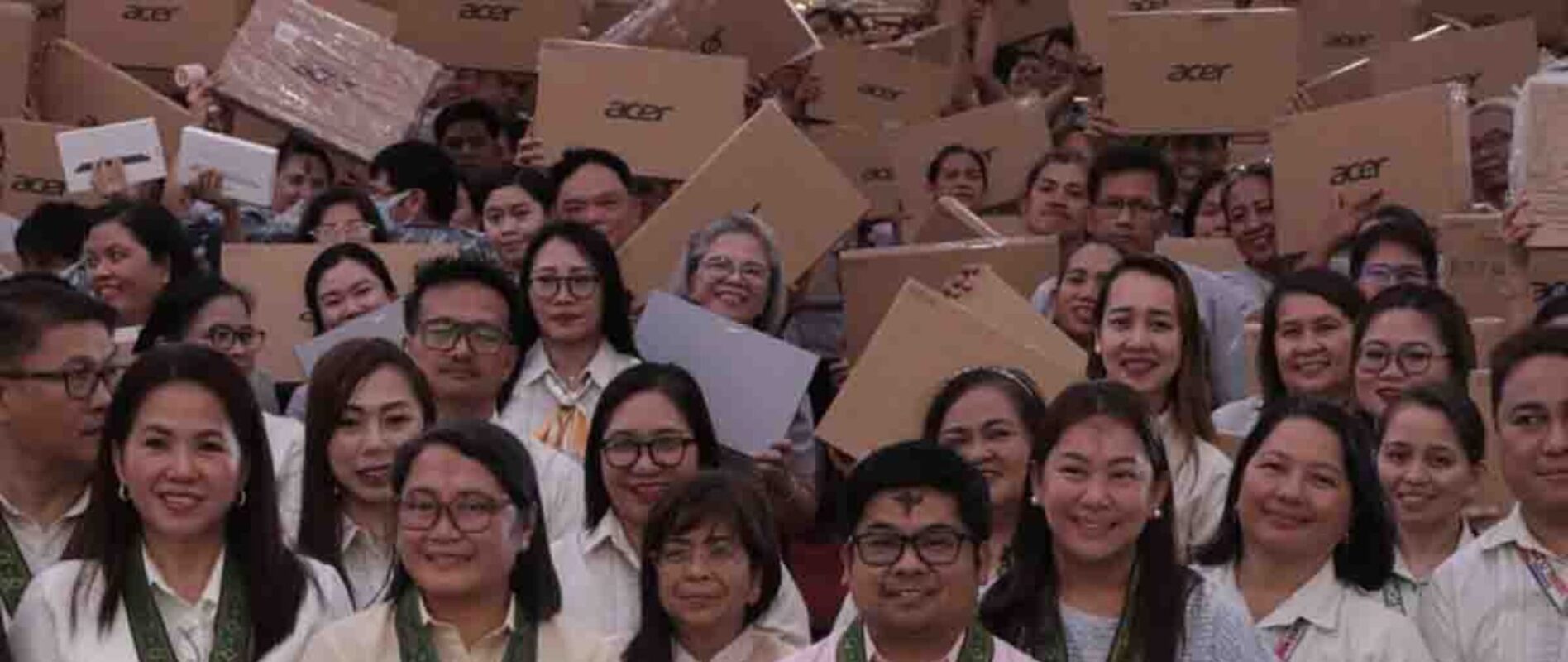VP SARA LISTS CHALLENGES FACING EDUCATION SECTOR
VICE President and Education Secretary Sara Duterte vowed to address the many challenges facing the country's basic education on Monday as she presented the Basic Education Report 2023.
VICE President and Education Secretary Sara Duterte vowed to address the many challenges facing the country’s basic education on Monday as she presented the Basic Education Report 2023.
She said that among these challenges are the lack of school infrastructure.
“The lack of school infrastructure and resources to support the ideal teaching process is the most pressing issue hounding the Philippine basic education,” Duterte said.
“The department is not blind to the reality that there is a need to build, repair and maintain school infrastructures to accommodate the growing number of learners all over the Philippines,” the DepEd chief added.
She reported that out of the 327,851 school buildings nationwide, only 104,536 are in good condition.
There are 100,072 school buildings that need minor repairs, 89,252 in need of major repairs and 21,727 are set for condemnation.
“In the Visayas alone, a total of 17, 263 classrooms damaged by Supertyphoon Odette in 2021 are still subject for repair and replacement,” Duterte said.
She said she recently visited typhoon-stricken schools Clarin National High School in Bohol and the Triana Elementary School in Limasawa island in Southern Leyte.
“The destruction left by Supertyphoon Odette in these schools were heartbreaking, raising the urgency of an appropriate action and collaboration between DepEd and education stakeholders from the local government units, private sector and international partners,” she said.
Duterte added that the problems brought by natural calamities are compounded by the armed conflict.
She said the department needed at least P9.82 billion for the repair of schools damaged by Typhoon Odette in Visayas alone.
The national government allocated P15.6 billion to DepEd for the construction of new schools this year.
The DepEd chief also said the ongoing review of the K to 12 curriculum showed that the “curriculum content is congested, some prerequisites of identified learning competencies are missing or misplaced” and that a “significant number of learning competencies cater to high cognitive demands.”
A study conducted by the agency’s bureau of curriculum development showed that 83 percent of the Senior High School respondents pursued college education while only a little over 10 percent of the graduates were employed.
“The K to 12 curriculum promised to produce graduates that are employable. That promise remains a promise,” Duterte said.
The assessment of the K to 12 curriculum revealed the weak teaching methods of teachers in addressing 21st century skills.
Studies conducted by the World Bank, UNICEF and the Research Center for Teacher Quality showed that Filipino teachers need further support, particularly in “strategically teaching critical thinking and problem solving skills.”
“While critical thinking was the most evident in the curriculum, it was also the least taught to students by teachers.Instead lessons leaned toward conceptual or content-based teaching.And lessons lacked in-depth processing to cultivate critical thinking and problem solving,” Duterte said.
Duterte, however, said that it is not the fault of the teachers whose dedication, integrity and commitment to learners are beyond reproach.
“The sad reality is that the system has failed them. This is the system that burdens them with backbreaking and time-consuming administrative tasks, a system that provide no adequate support and robs them of the opportunity to professionally grow and professionally teach,” she said.
Duterte admitted that the problem on literacy is distressing and alarming, citing a 2018 study of the Programme for International Assessments or PISA showing that 81 percent of participating Filipino learners could not deal with basic math problems, 82 percent had trouble understanding text of moderate length and 78 percent could not recognize correct explanations for scientific phenomena.
“Oftentimes, Filipino learners experience emotional abuse and exhaustion. Some Filipino learners suffers from psychological fatigue and being academically insecure, many of them may fail to meet the standards of a demanding and competitive world,” Duterte said.
The department has started implementing the National Recovery Plan and adopted various initiatives to further capacitate teachers.
Duterte said that they revised the K to 12 curriculum to make it more responsive to the needs of students and the country and to develop learners who are imbued with 21st century skills, discipline and patriotism.
“We will also reduce the number of learning areas in K to 12 from 7 to 5 to focus on foundational skills in literacy and numeracy in the early grades, particularly among disadvantaged students,” she said.
The DepEd chief added that the department will also revitalize reading, science and technology programs, and English proficiency.
Duterte vowed to build more schools and classrooms that are resilient to floods and earthquakes.














